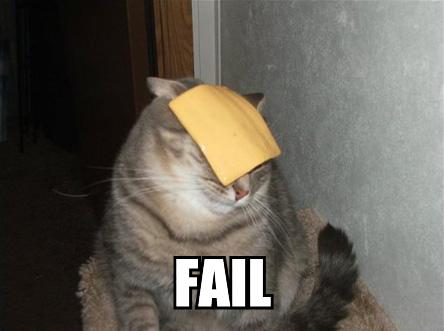UPDATED JUNE 13, 2011
for one of the sessions in the AIM program we had to bring in our artist statement and let our peers give us feedback and constructive criticism. i used the word failure in my statement and nobody liked it - thought it had a negative connotation to it. i don't think i used it that way. i see failure as an obvious element in the artistic process. i have faith in and welcome it. it's the only way to push through ideas and get to the core of the painting. if you don't try something how will you know? you don't. that's why you have to try and ultimately a lot of stuff won't work out and you move on to the next one.
since that session, i've noticed failure being tossed around. to begin with Michael Harvkey, who led the workshop and overheard my group's conversation about the word failure, showed up at the next session with a book called Failure published by MIT Press and compiled by Lisa Le Feuvre. still haven't read it and can't wait to get me hands on it.
next, there's Tavis Smiley's book, Fail Up. watch the video.
i just checked out Mira Schor's M/E/A/N/I/N/G; An Anthology of Artists' Writings, Theory and Criticism and found within it The Success of Failure by Joel Fisher. Which is a revised essay, originally written for the exhibition The Success of Failure in 1984. he writes:
The failures of big ideas are sometimes more impressive than the successes of little ones.and more recently, Sharon Butler's article in the Brooklyn Rail, ABSTRACT PAINTING; The New Casualists. this whole article could be my artist statement. she writes:
The idea is to cast aside the neat but rigid fundamentals learned in art school and embrace everything that seems to lend itself to visual intrigue—including failure. The painters take a meta approach that refers not just to earlier art historical styles, but back to the process of painting itself. These self-amused but not unserious painters have abandoned the rigorously structured propositions and serial strategies of previous generations in favor of playful, unpredictable encounters.
They are looking for unexpected outcomes rather than handsome results.
With less investment in honing a unique visual language, painters like Kadar Brock, Rebecca Morris, and Jasmine Justice use earlier forms of abstraction the way Rauschenberg used found objects. In the process, there is no room for handwringing about originality; it is simply assumed that it will result from synthesis and recombination. And if it doesn’t, well, isn’t that just as interesting?
On balance, they are more intrigued by the questions and contradictions in art than by any definitive answers it might provide.
In many ways, the new approach to abstraction is indebted to female artists of the 1970s like Elizabeth Murray, Mary Kelly, and Ree Morton, who, railing against the macho posturing of the Minimalists, worked from an intimate point of view that embraced messy everyday detail.
i took "failure" out of my artist statement. now i want to put it back. but has it now turned into meme? ... ugh.
UPDATED JUNE 13, 2011
i found another article on failure via AFC, when i finally got around to checking out the starred items in my reader. Choire Sicha writes in the Awl:
...there has to be a place to try and make things and achieve failure along the way


'failure' as virtue needs to be balanced with talent. Whilst Butler's essay is very good I am wondering if it will become an excuse to make crap. None of those names she mentions in the article produce sub par work, by the way, so I'm not getting on that soap box. I disagree completely with the notion that past painters didn't favor playful and unpredictable encounters. I sort of thought that's what ab ex was all about. Put 'failure' back in Jennifer, but don't let it, like any other strategy, become shtick.
ReplyDeleteThe article by Sharon Butler was inspiring. As an artist when I focus on the outcome, it really takes something out of it for me. No rules if you want to put "failure" back into your statement do it :)
ReplyDelete@anon: "but don't let it, like any other strategy, become shtick. " yes that is key!
ReplyDeletein the past i've also made the mistake of writing my artist statement about what i want my art to be and not where it's at at the moment. statements are so tricky.